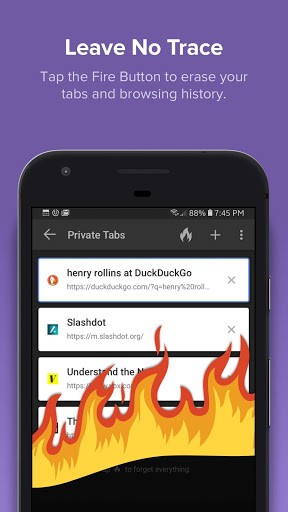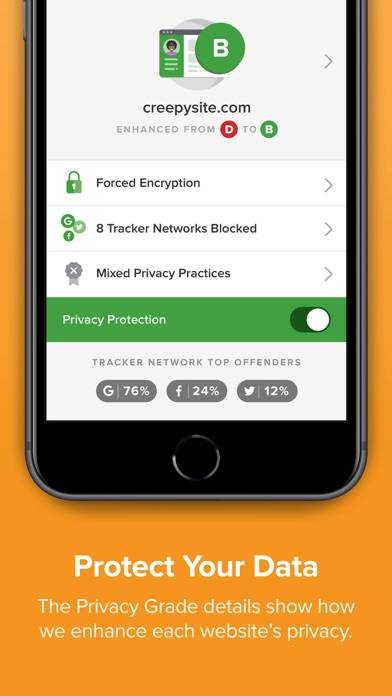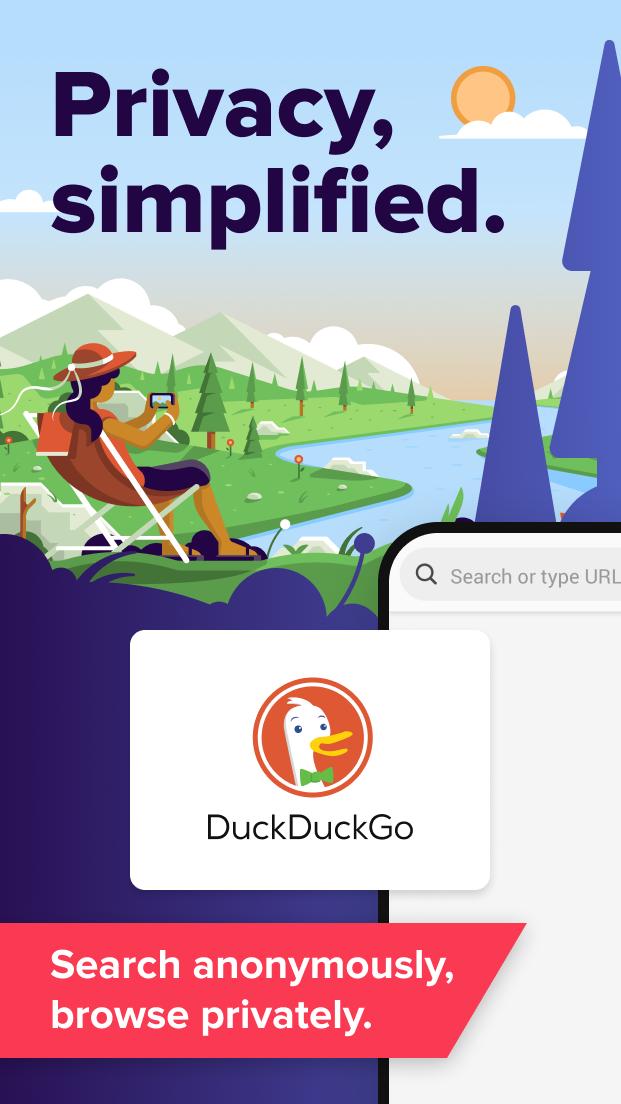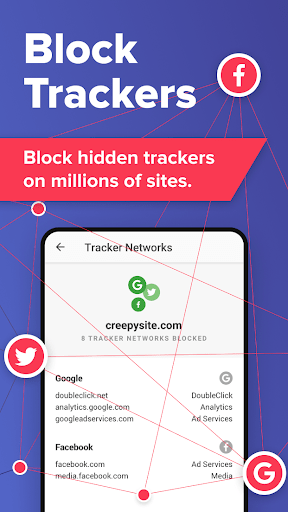DuckDuckGo Privacy Browser
DuckDuckGo, the popular Google alternative search engine, has introduced a privacy-focused mobile browser. We put the DuckDuckGo browser to the test for a few weeks and here are our thoughts. A decent piece of equipment that can help keep trackers out of your personal data. It even has a clever function that securely wipes your internet history with a single tap. Like other smartphone users, you presumably use the default browser. You may have even installed an iOS browser like Firefox or Chrome. But if you share our passion for internet privacy, you should check out the free DuckDuckGo privacy browser.
The software works as expected and we had no issues viewing media-rich sites like YouTube and Twitter. The address bar functions as a search bar for DuckDuckGo.com, the group’s native search engine that delivers remarkable results without sending every query to Google HQ. In reality, the company guarantees to never save any user’s search history. Remember that awful Google search last week? Unless you specifically told Google not to remember, they will remember and will use that to target you with advertising. With DuckDuckGo, privacy is built-in, not an optional extra. Another nice touch is the Google-free search autocomplete.
The browser supports tabs, bookmarks, and other standard features. DuckDuckGo has an unusual burn button that looks like a flame. When you hit it, your device’s screen flashes like it’s on fire, and your surfing history, cache, and other data are permanently erased. This is a great privacy tool if you share your device with others and don’t want them to see your email account.
For desktop or laptop browsing, DuckDuckGo offers a browser extension that can assist with address tracking and security concerns. Encrypted connections prevent harmful code from running. Sadly, we discovered that the browser add-on was more likely to produce compatibility issues than the mobile browser. For example, one banking website we examined kept renewing itself multiple times per second, and we couldn’t log in until we deactivated the extension completely. The makers must have anticipated this consequence, as they added a white list option that disables the extension if you visit a broken site.
Overall, the extension is useful, but you’re better off using a privacy-focused browser like Brave or Firefox. The DuckDuckGo plugin is only useful if you are forced to use Google Chrome (like at work) but still want to control your privacy. However, we think the mobile browser is the obvious victor and recommend it to anyone who wishes to avoid being tracked online.
Description
DuckDuckGo Privacy Browser gives you the speed you need. The surfing capabilities you expect (such tabs and bookmarks). And best-in-class privacy features.
With a single tap on the Fire Button, Burn Data, you can erase all of your tabs and browsing data.
Automatically block hidden third-party trackers we identify hiding on websites you visit. Preventing the companies behind such trackers from gathering and selling your data.
Search Anonymously – our built-in private search engine also allows you to search the Internet without being monitored.
Enforce Encryption — where possible, require sites to use an encrypted (HTTPS) connection to secure your data from prying eyes. Such as unwanted snoopers and Internet service providers.
Decode Privacy – each site you visit is assigned a Privacy Grade (A-F) so you can quickly see how secure you are. And you can even delve further into the data to see who we caught trying to monitor you.
Signal Your Privacy Preference with GPC — Global Privacy Control (GPC). Which embedded into the browser, designed to enable you effortlessly express your legal opt-out rights. Under future regulatory frameworks (e.g., CCPA, GDPR) in various states or nations. This will tell websites not to sell or share your personal information.
DuckDuckGo (abbreviated DDG) is an internet search engine that prioritizes user privacy. And avoids the filter bubble of tailored search results. DuckDuckGo does not display content farm search results. It employs numerous APIs from other websites to show quick results to queries. And it relies on its partners (mostly Bing) and its own crawler for traditional connections.
As of October 2021, the company had 149 workers and situated in Paoli, Pennsylvania. In the Greater Philadelphia area. The name of the company is a play on the children’s game Duck, Duck, Goose.
Traffic
DuckDuckGo announced in June 2013 that it had seen a large rise in traffic. The company’s Twitter account stated that on Monday, June 17, 2013. It had three million daily direct searches. In May 2013, it had an average of 1.8 million daily direct searches. Some attribute this assertion to the disclosure of PRISM and the fact that Edward Snowden. Revealed also the information about other National Security Agency (NSA) operations.
“No One Cares About “Private” Search,” Danny Sullivan stated on Search Engine Land. Despite the search engine’s growth “it’s not grown anywhere near the amount to show any large. Or even moderately notable switching by the searching public” for concerns of privacy.
Moreover, in response, Caleb Garling of the San Francisco Chronicle argued, “I believe this theory suffers from a few significant logic flaws.” Citing a traffic rise and a lack of public awareness of DuckDuckGo’s presence.













Reviews
There are no reviews yet.